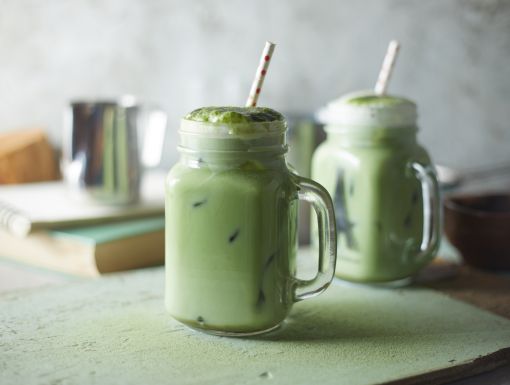
Top 4 Plant-Based Milk Picks for Best Nutrition in 2024
How does cow's milk nutrition compare to plant-based milk?
Cow’s milk has ample competition in the dairy case, with an ever-growing array of ‘milks’ made from almonds, cashews, peas, oats, hemp and more. These plant-based alternatives make us feel like we’re doing something good for our bodies, but are they really any better? The answer is… complicated. Registered dietitian Molly Kimball gives us the rundown on top picks for cow’s and plant-based milk.
Cow's milk nutritional value for comparison
Per cup: 12 grams sugar; 8 grams protein. 50% more sugar than protein [lactose, naturally-occurring milk sugar]. Excellent source of vitamins A+D.
Ultra-filtered milk – familiar in varieties like Fairlife and Trader Joe’s – improves these stats, with 50 percent more protein and 50 percent less sugar than regular milk.
Plant-based nutritional value
Protein varies, 0-10 grams per cup (coconut and almond milk are among the lowest). Added sugar can be a drawback, with even ‘original’ varieties of many plant-based milks packing in ample added sugar.
Most plant-based milks are made from nuts, seeds or grains mixed with water and salt; many major brands also include thickeners and emulsifiers like guar gum or gellan gum.
4 best plant-based picks: Molly’s current favorites
Malk Almond Milk (original, unsweetened)
- 70 calories, 4.5 grams fat, 2 grams carbs, 2 grams fiber, 0 sugar, 4 grams protein
- Ingredients: filtered water, organic almonds, and Himalayan pink salt
Califia Farms Almond Milk (unsweetened)
- 35 calories, 3 grams fat, 1 gram carbs, <1 gram fiber, 0 sugar, 1 gram protein
- Ingredients: Almond Milk (Water, Almonds), Calcium, Sunflower Lecithin, Sea Salt, Natural Flavor, Guar Gum, Gellan Gum, Vitamins A + D3, Potassium Citrate.
Silk Soy Milk
- 80 calories, 4.5 grams fat, 4 grams carbs, 2 grams fiber, <1 gram sugar, 7 grams protein
- Ingredients: Organic Soymilk (Filtered Water, Organic Soybeans), Contains 2% or less of: Vitamin and Mineral Blend (Calcium, Vitamins A + D2, Riboflavin [B2], Vitamin B12), Sea Salt, Gellan Gum, Vitamin C To Protect Freshness, Natural Flavor.
Ripple Dairy Free Milk (unsweetened)
- Per cup: 80 calories, 4.5 grams fat, <1 gram carb, <1 gram fiber, 0 sugar, 8 grams protein
- Ingredients: Water, Pea Protein Blend (Water, Pea Protein), Sunflower Oil, Contains less than 1% of Vitamins A, D2, Vitamin B12; DHA Algal Oil, Calcium, Potassium, Sunflower Lecithin, Sea Salt, Mixed Tocopherols (Vitamin E To Preserve Freshness), Natural Flavor, Guar Gum, Gellan Gum.
Molly’s Least-Favorite Milk Options:
OATMILK! High in carbs and sugars with minimal protein, it’s more like ‘carb water’ than a milk alternative
THE BOTTOM LINE
The good news is that for those who wish – or need – to avoid cow’s milk for dietary, nutritional or environmental reasons, there is a milk alternative to suit nearly any taste preference, intolerance or sensitivity. The key is to check labels closely to find the milk alternative with the most nutrients you’re looking for without the stuff you don’t want.
To schedule a nutrition consult, whether virtually or in-person, contact us at nutrition@ochsner.org.
Editor’s note: Registered dietitian Molly Kimball offers brand-name products as a consumer guide; she does not solicit product samples nor is she paid to recommend items.



